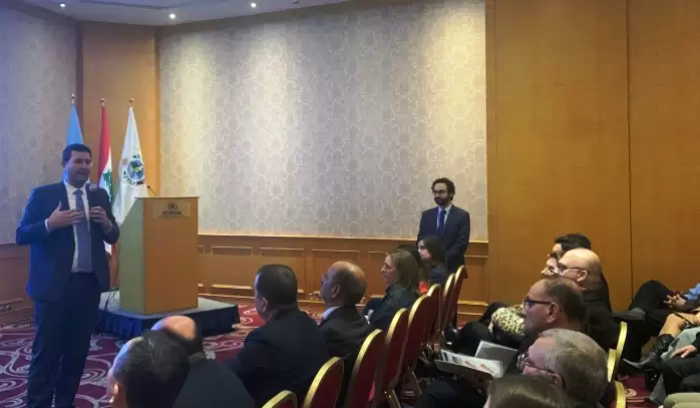NNA - Around 2 million people in Lebanon, including 1.29 million Lebanese residents and 700,000 Syrian refugees, are currently facing food insecurity, according to Lebanon’s first ever Integrated Food Security Phase Classification (IPC) Acute Food Insecurity Analysis. The situation is expected to worsen in the coming months.
The analysis predicts that the situation will deteriorate between January and April of 2023, with 2.26 million people - 1.46 million Lebanese residents and around 800,000 refugees - expected to be in the "crisis" phase or worse and requiring urgent assistance.
The results of the analysis were officially launched under the Patronage and in the presence of His Excellency the Minister of Agriculture in Lebanon Abbas Hajj Hassan, FAO Representative in Lebanon, Nora Ourabah Haddad, and WFP Country Director in Lebanon, Abdallah Al Wardat. The launch was also in the presence of the UN Deputy Special Coordinator for Lebanon Imran Riza and other stakeholders who took part in the process.
The worrying food security situation is the result of a three-year deep economic crisis. Currency depreciation, the lifting of subsidies, and the rising costs of living are preventing families from accessing enough food and other basic needs each day.
“More people than ever before in Lebanon are now dependent on assistance,” says Abdallah Alwardat, WFP Representative and Country Director in Lebanon. “These findings are deeply troubling and reflect the dire situation that many people in Lebanon are currently facing.”
According to FAO Representative in Lebanon, Nora Ourabah Haddad, “The IPC results give us a bleak picture of the food security in country. They reconfirm the urgent need to transform the country’s agrifood systems to make them more efficient, more inclusive, more resilient, and more sustainable”. She added: “This first study for Lebanon represents a unique opportunity to highlight the importance of joining our efforts as National and International Communities to provide sustainable support to people most in need through combining humanitarian and development interventions in an integrated approach.”
The study, conducted by 55 national experts in September, revealed that the district of Akkar has the highest level of acute food insecurity among Lebanese residents, followed by Baabda, Baalbek, and Tripoli. Among Syrian refugees, Zahle is the district with the highest level of acute food insecurity, followed by Baalbek and Akkar.
The classification of food insecurity and malnutrition was conducted using the IPC protocols, which are developed and implemented worldwide by the IPC Global Partnership - Action Against Hunger, CARE, CILSS, EC-JRC , FAO, FEWSNET, Global Food Security Cluster, Global Nutrition Cluster, IGAD, Oxfam, PROGRESAN-SICA, SADC, Save the Children, UNICEF and WFP.
The Minister of Agriculture in the caretaker government, Dr. Abbas Hajj Hassan, indicated that "the meeting today is in order to produce joint work to discuss together solutions that keep pace with the crises that Lebanon suffers from in light of the social and economic crises. The aim has always been to create a joint realistic vision for the Lebanese society on the economic and social levels, linking to food security and in order to ensure that it is not compromised, while also ensuring the ability of the Lebanese citizen to secure their daily needs.” He added, “The presence of the Ministry of Agriculture in the Integrated Phase Classification of Food Security known as IPC comes from our belief that partnership in planning and analysis is a pillar in responding to what the Lebanese reality needs.”
As our work continues to expand across Lebanon, people’s needs also continue to grow due to ongoing local and global crises. These challenges are pushing more people into food insecurity, making it increasingly difficult for them to access adequate food and nutrition. We are grateful for the commitment of our donors and call on additional support from the international community to help address this critical situation. Without urgent action, the consequences for the health and well-being of these vulnerable populations will be severe.
================










